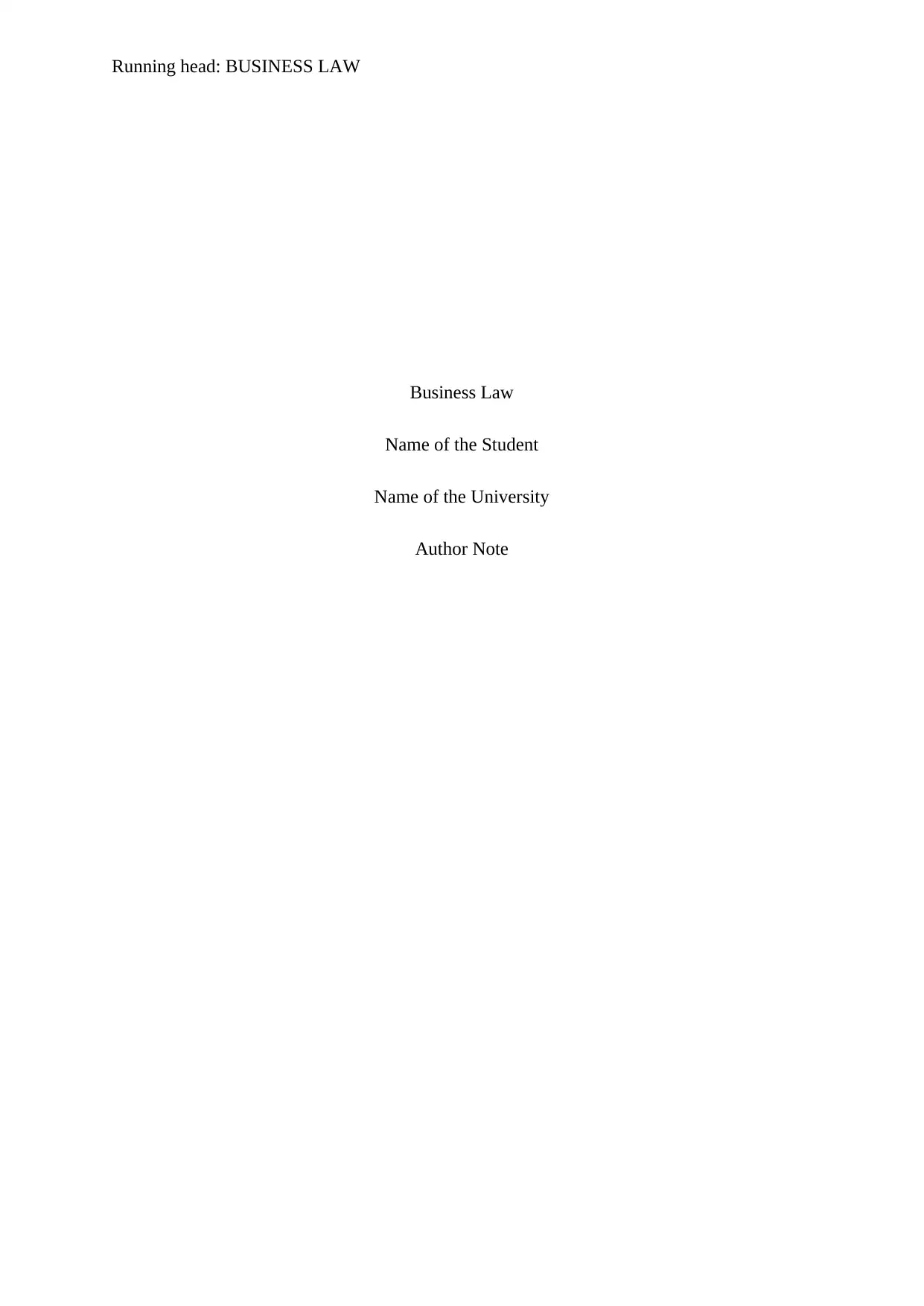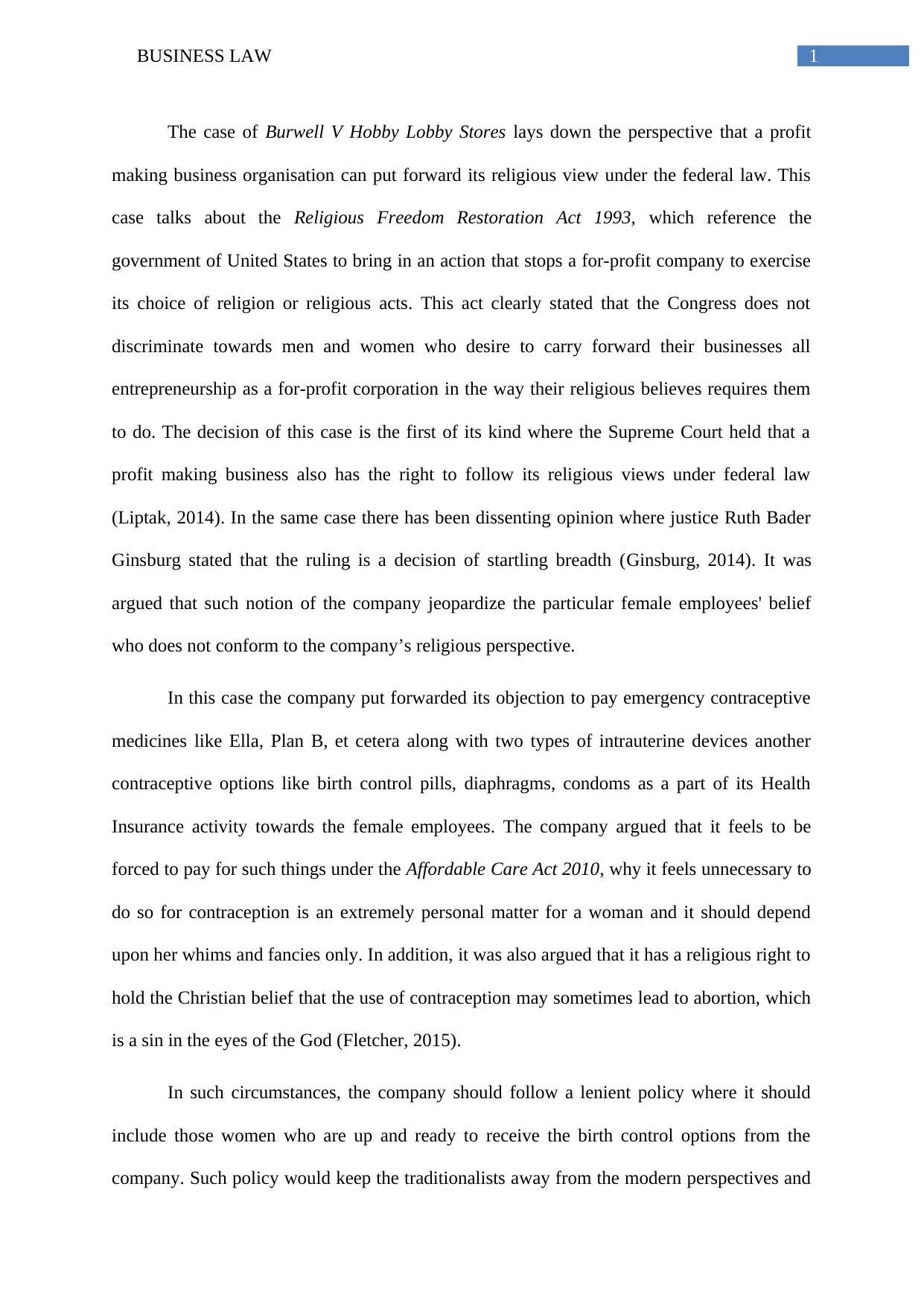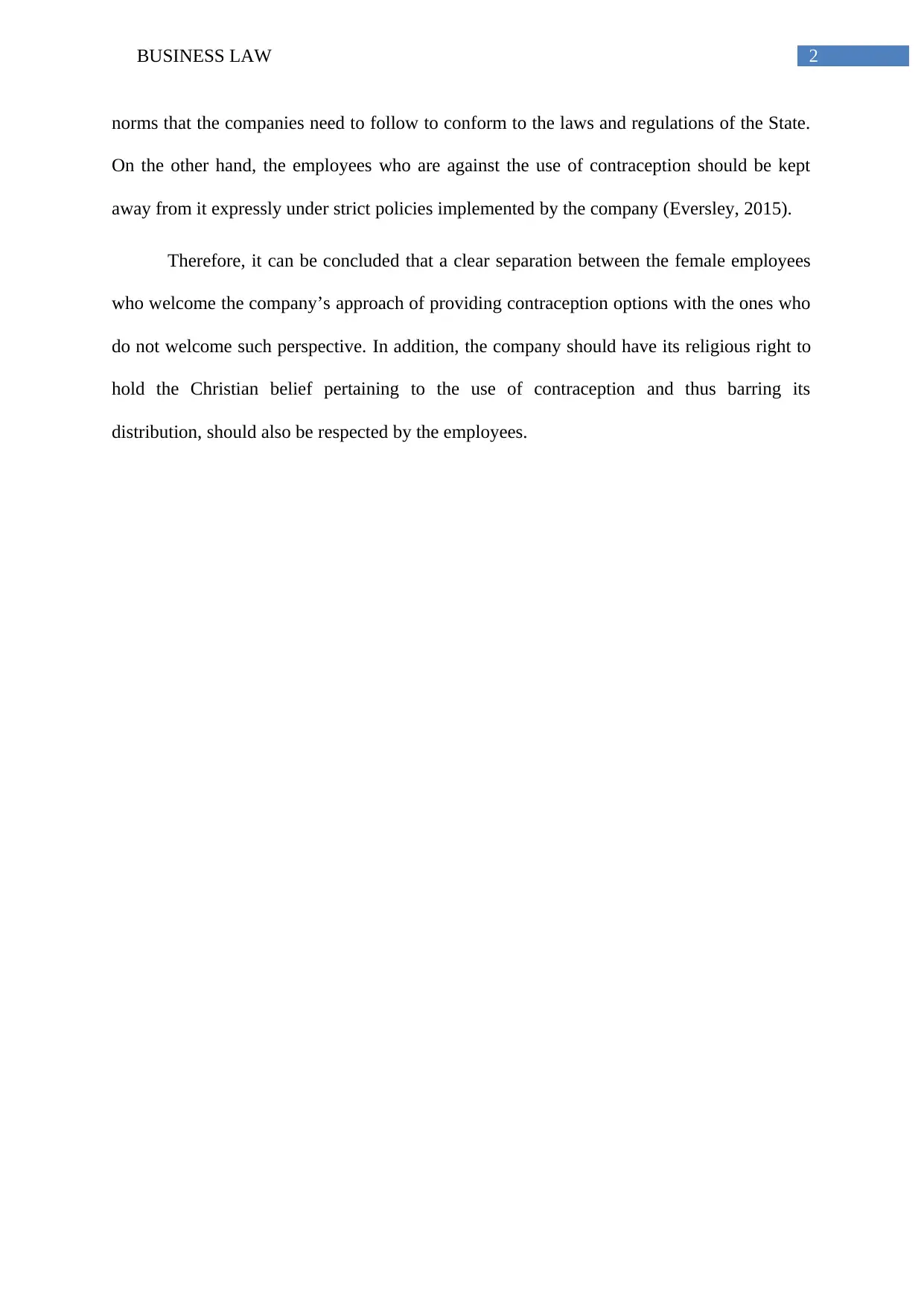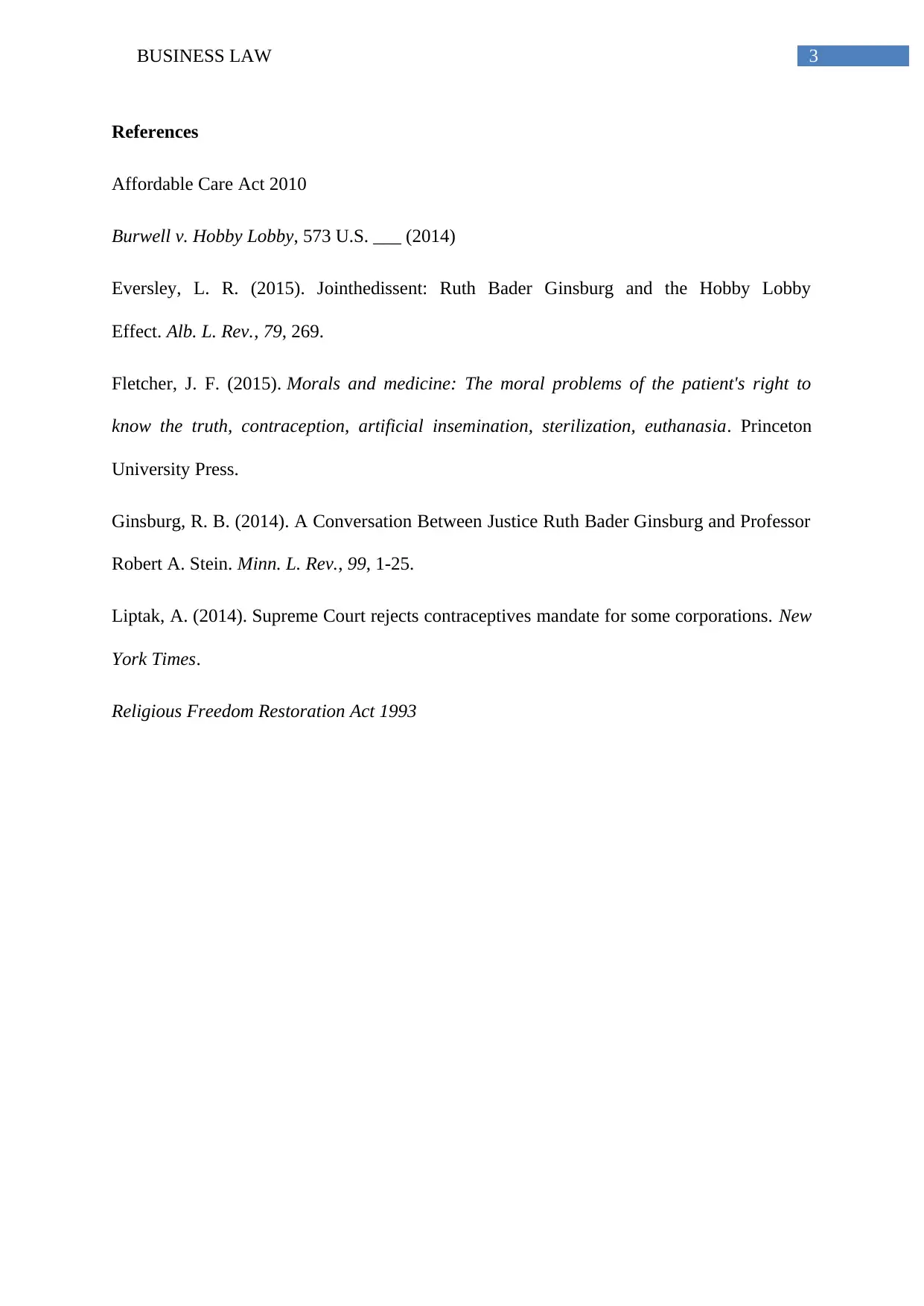Legal Analysis: Burwell v. Hobby Lobby Stores & its Implications
VerifiedAdded on 2023/04/05
|4
|593
|76
Case Study
AI Summary
This case study examines the Burwell v. Hobby Lobby Stores case, focusing on the interplay between religious freedom and business law. The case revolves around the Religious Freedom Restoration Act of 1993 and the Affordable Care Act of 2010, specifically concerning the mandate for employers to provide contraception coverage in their health insurance plans. Hobby Lobby, a for-profit company, argued that providing certain contraceptive methods violated their religious beliefs. The Supreme Court's decision in favor of Hobby Lobby established that for-profit businesses can assert religious objections under federal law. The analysis also considers dissenting opinions, which raised concerns about the impact on employees' rights and the potential for discrimination. The study suggests policies that balance religious freedom with employees' healthcare needs, emphasizing the importance of clear separation and respect for differing beliefs within the workplace. Desklib provides access to similar case studies and solved assignments for students.
1 out of 4











![[object Object]](/_next/static/media/star-bottom.7253800d.svg)